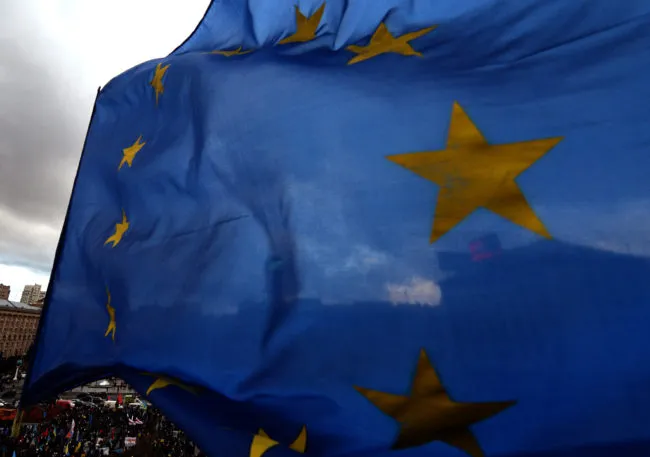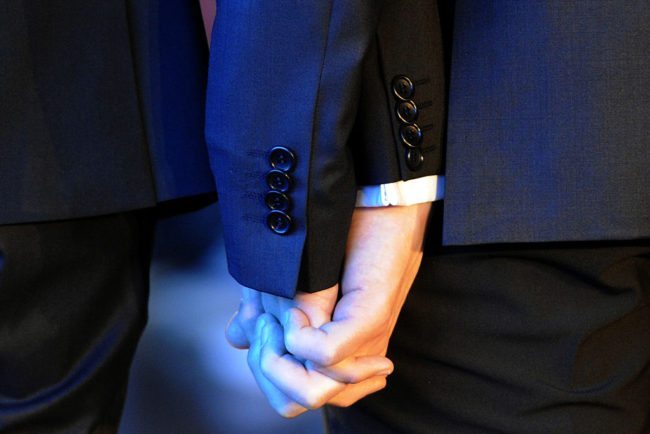Where is gay marriage still illegal in Europe?

The owner cited religious beliefs as the reason for banning same-sex weddings (Justin Sullivan/Getty Images)
We look at the European countries where gay marriage is legal, illegal and banned. Nine countries also have some laws regarding civil unions.
So, where in Europe is gay marriage legal? Here’s all you need to know. We follow the lists with information about the latest country to vote regarding equal marriage.
The 15 countries where gay marriage is legal in Europe:
The Netherlands (2001)
Belgium (2003)
Spain (2005)
Norway (2009)
Sweden (2009)
Portugal (2010)
Iceland (2010)
Denmark (2012)
France (2013)
United Kingdom, except for Northern Ireland (2014)
Republic of Ireland (2015)
Malta (2017)
Germany (2017)
Finland (2017)
Austria (2019)
9 European countries with some form of civil union:
Andorra (2005)
Czech Republic (2006)
Slovenia (2006)
Switzerland (2007)
Hungary (2009)
Croatia (2014)
Greece (2015)
Cyprus (2015)
Italy (2016)
10 nations where equal marriage is still illegal
Albania
Azerbaijan
Bosnia and Herzegovina
Kazakhstan Kazakhstan
Republic of Macedonia
Monaco
Romania
Russia
Turkey
Estonia
14 European countries with a constitutional ban on equal marriage:
Bulgaria (1991)
Lithuania (1992)
Belarus (1994)
Moldova (1994)
Ukraine (1996)
Poland (1997)—recognises co-habitation of same-sex partners in limited circumstances
Latvia (2006)
Serbia (2006)
Montenegro (2007)
Hungary (2012)
Croatia (2013)
Slovakia (2014)
Armenia (2015)
Georgia (2018)
Romanians will vote this weekend (October 6-7) on whether they want to re-define marriage as a union between a man and a woman.
The referendum could constitutionally ban equal marriage, which remains illegal in the country.
Human rights groups—including Amnesty International and the European Commission on Sexual Orientation Law—have criticised the vote as a setback for LGBT+ rights in Romania, saying that it “panders to homophobia.”

Most EU member states recognise some form of same-sex civil union. (VASILY MAXIMOV/AFP/Getty Images)
Romania isn’t the first country to call a referendum to constitutionally ban same-sex marriage. Croatia did so in 2013, although same-sex couples in the country have had their relationships legally recognised since 2003 and, in 2014, the government granted same-sex couples the same rights as their heterosexual married counterparts, except for the right to adopt children.
Hungary also recognises some forms of same-sex civil unions, but a new constitution enacted in 2012 includes a ban on gay marriage. Slovakia too has a constitutional ban on gay weddings, but does recognise same-sex ceremonies performed in the European Union (EU) and including a EU citizen.
Elsewhere in Europe, same-sex marriage has become increasingly accepted since the Netherlands became the first country in the world to legalise gay weddings in 2001.
Fourteen other countries in Europe so far have followed the Dutch lead—most of them are on the western side of the continent and are part of the European Union, where 23 out of 28 member states recognise some type of same-sex union.
Austria was the latest European country to legalise same-sex marriage following a Constitutional Court decision in 2017, which will come into effect in January 2019.
A further nine European nations include some type of civil union between same-sex couples in their laws.
Two countries, Armenia, which has a ban on gay marriage, and Estonia, have not legalised equal marriage but legally recognise same-sex ceremonies performed in other countries.

Romania is set to vote on whether to implement a constitutional ban on equal marriage in the country. (BORIS HORVAT/AFP/Getty Images)
Some ten countries, including Romania, do not recognise same-sex unions at all, while an additional fourteen have a constitutional ban on equal marriage.

